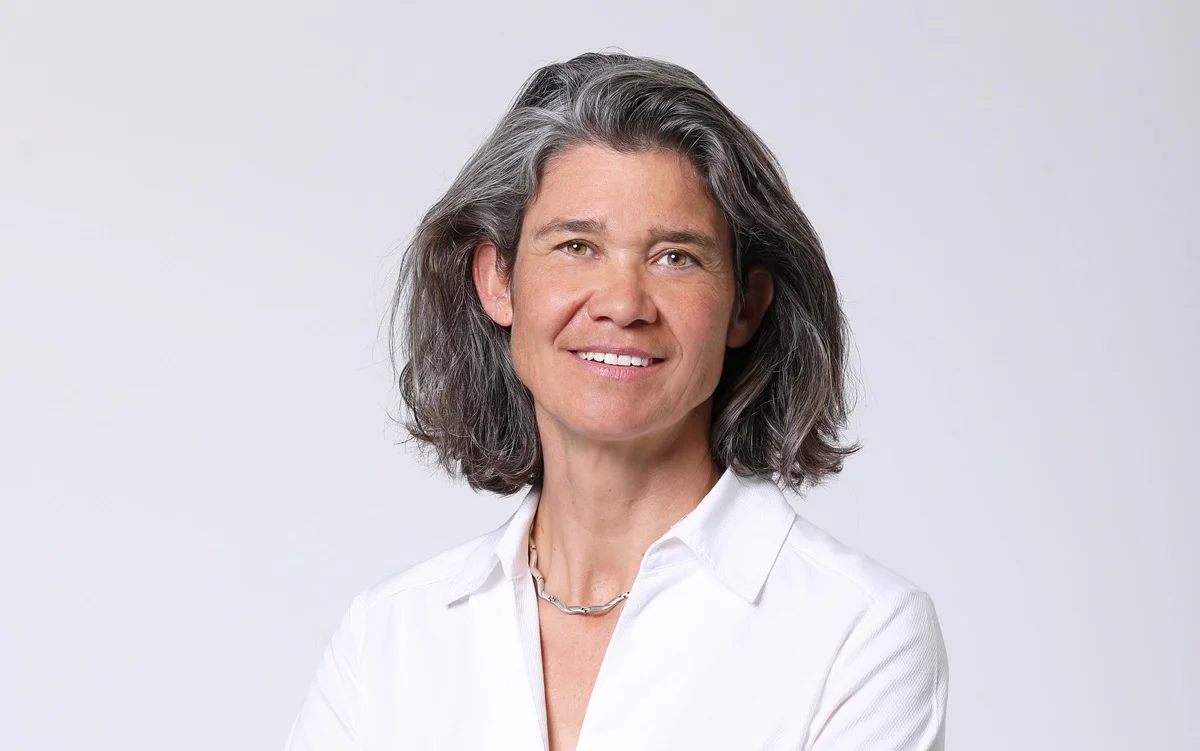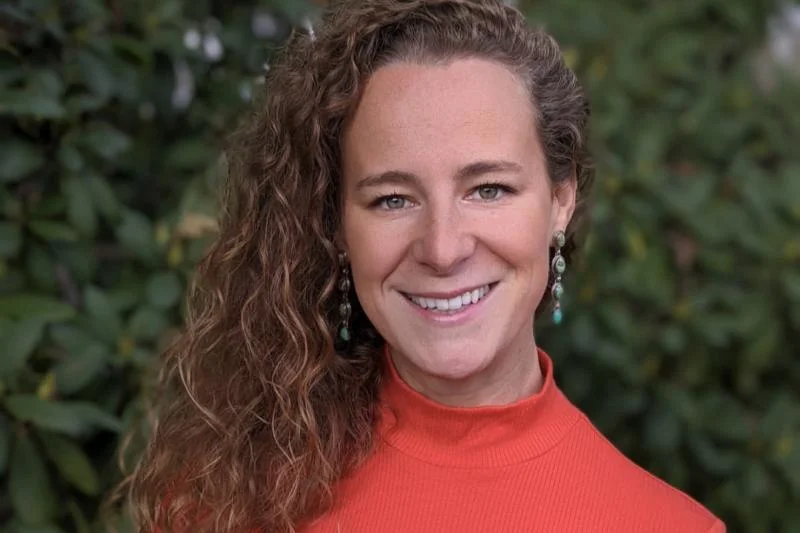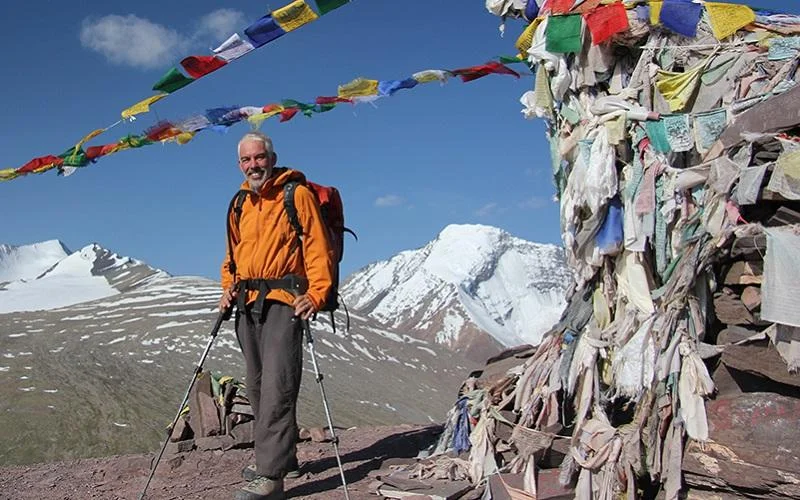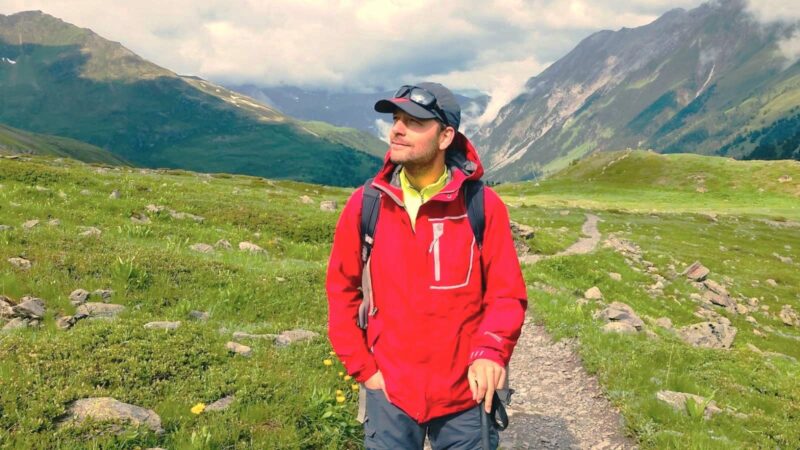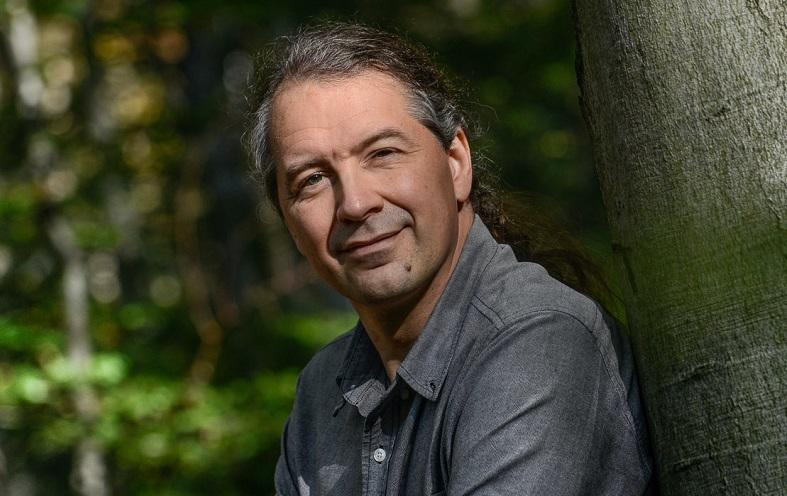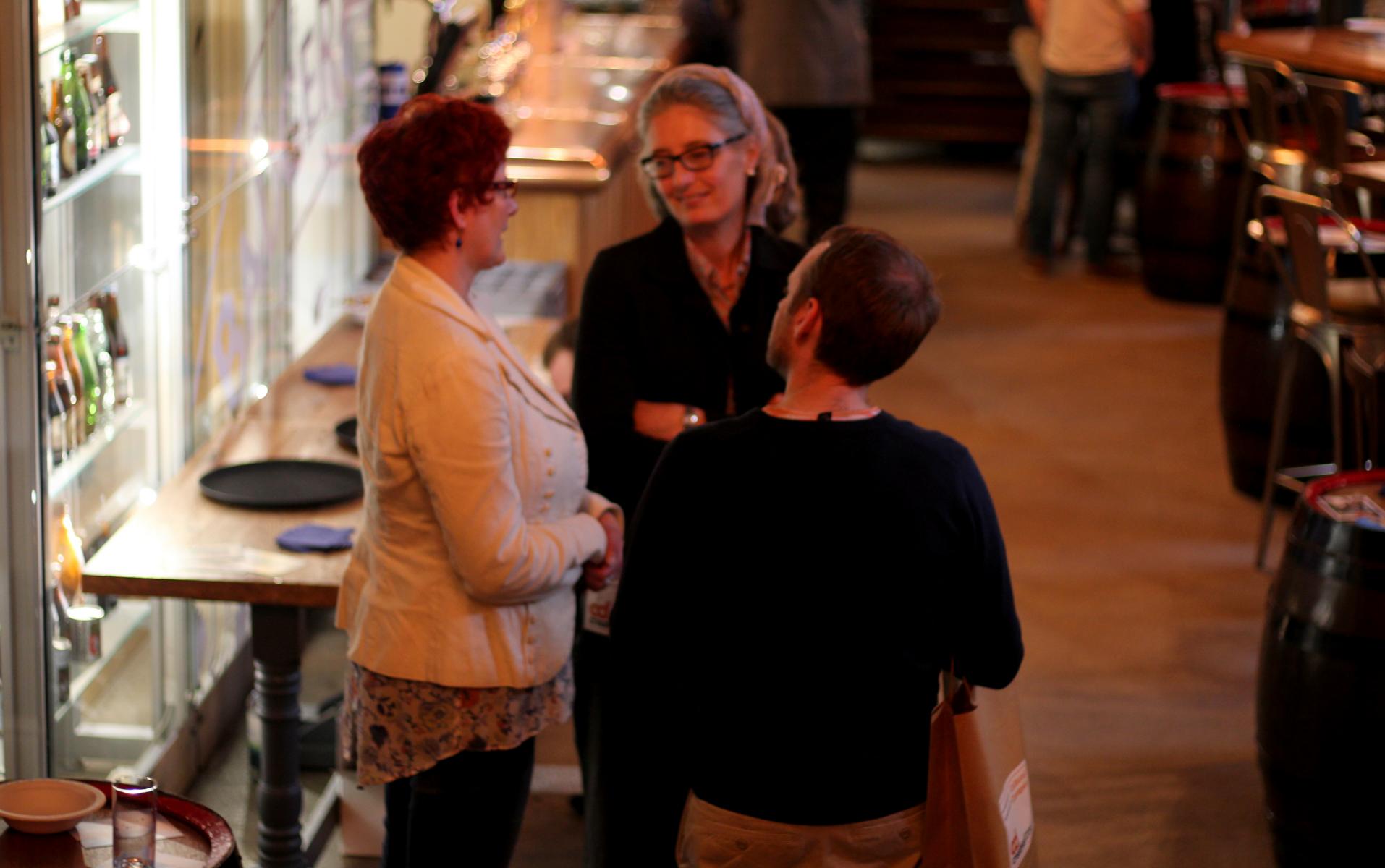
From education to business consulting, Rebecca Hawkins has been helping shape the sustainable tourism industry for almost twenty years. In this interview, Rebecca tells us how her Gran’s kitchen creativity helped alert her to the need to minimize waste and how a doctorate and a bit of luck launched her sustainable tourism career.
She also shares her experience helping PhD students become the sustainability leaders of tomorrow and how her organization, the Responsible Hospitality Partnership, helps companies use sustainable tourism strategies to create meaningful benefit to their business and the world in which they operate.
Learn about:
- The origins, mission and successes of the Responsible Hospitality Partnership;
- The true impact of food waste in the tourism industry and what businesses can do to minimize it;
- Where most businesses go wrong with regard to sustainability;
- Rebecca Hawkins’ advice to early career professionals in tourism.
Rebecca, when did you first become aware of the concept of sustainable tourism?
The foundations were probably laid by my Gran who, like so many of her generation, had a waste not want not ethos. She was a school cook and could make a meal out of almost anything. In her view, there was no excuse for wasting food (or anything else come to that). All that was needed was a bit of creativity and willing kitchen helpers (often her grandchildren) to cook up a storm.
College was the point at which I first came across ‘sustainability’ as something that people wrote books about (although most called it environmental management back then). I started college on a history course, but quickly discovered it wasn’t for me. I found myself in the environment section of the library one day. By chance, I picked up Silent Spring (Rachel Carson) and went from there to James Lovelock’s Gaia all in the same afternoon. And that was my light bulb moment. I realized that ‘sustainability’ wasn’t just a quirky lifestyle choice, but an academic discipline in its own right, underpinned by serious theoretical principles. I changed course and became absolutely passionate about “sustainability” as it applied to pretty much everything.
Post college, my early jobs were in tourism and hospitality (I have always loved travel). I ended up landing a contract as Research Assistant at Bournemouth University and this involved writing a PhD. This gave me the freedom to really examine the environmental and social impacts of tourism just as sustainable tourism was starting to emerge on the policy agenda. It also gave me a great grounding in implementing a research proposal (I learned as much from the failures as successes). In fact, I often claim that writing my PhD was the single most important factor in forming my career.
What made you decide to pursue a career in sustainable tourism? How did you get started in the industry?
A combination of having a PhD and luck! After my PhD, I worked in various tourism roles and then saw a job advertised working for the World Travel & Tourism Council, running their environmental research centre. I have never wanted a job as desperately as I wanted that one. I applied and about a week later had been offered the job. I couldn’t believe that I had landed my dream job with two of the leading visionaries in the sector as my bosses.
I spent the next five years working with 70 of the world’s biggest travel and tourism companies understanding their responses to the environmental issues, writing policy documents (including the interpretation of Agenda 21 for the travel and tourism industry) and testing solutions in companies and destinations. I loved every minute, and I still get a huge thrill from my work today.
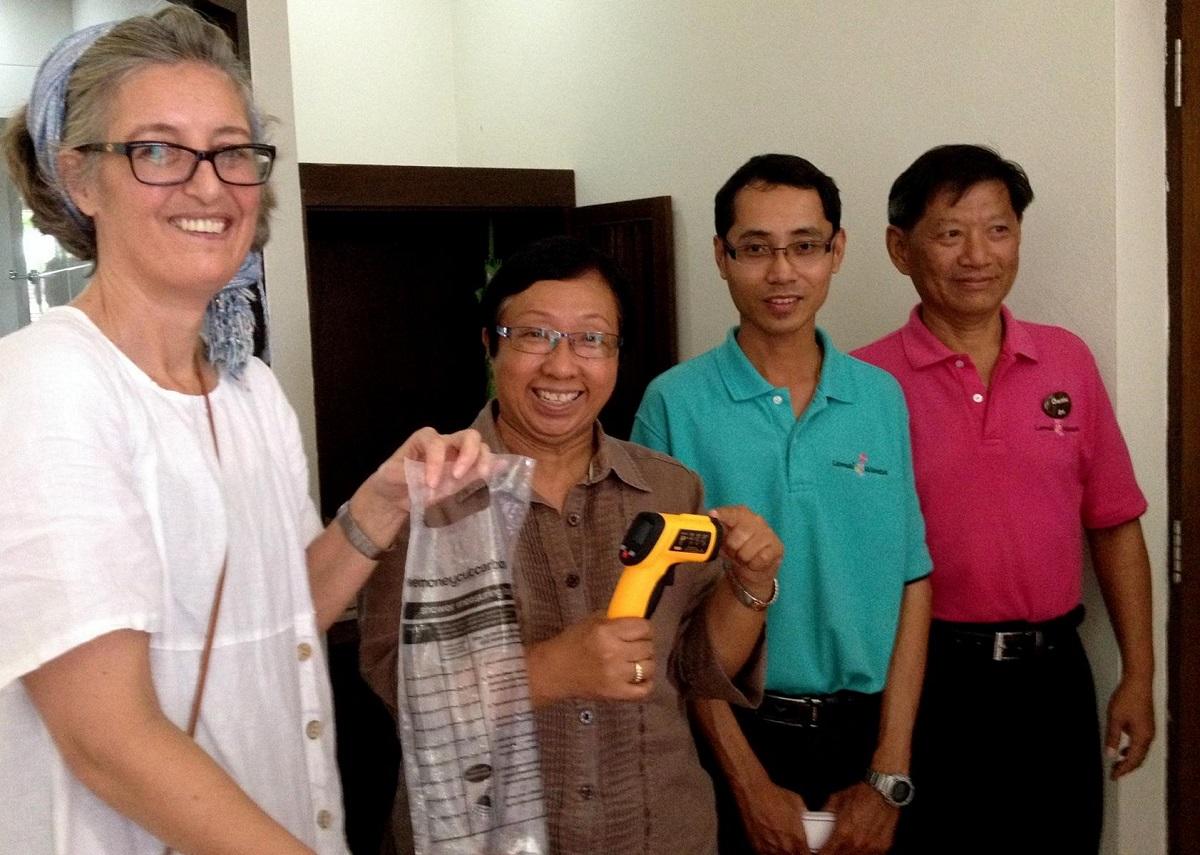
You have been working as a Research and Consultancy Fellow at Oxford Brookes University for almost two decades. Can you tell us a little about your work there?
I have run my own business for 20 years, but also really enjoy the academic environment and so have always kept one foot in that door. I am a Research and Consultancy Fellow for Brookes, and I mainly supervise PhD students. I love the enthusiasm that my students come with and the sense that they can really make a difference through their research. I find that my consultancy complements my academic role perfectly: many RHP clients become case studies for PhD students and the academic environment provides a safe space in which commercial companies can explore some of the ‘harder to tackle’ aspects of sustainability.
I love the point in the PhD journey at which students become the ‘expert’ in their chosen field. I have had students working on a wide range of topics, including understanding the mechanics of staff behaviour change, assessing how the imagery we use conveys messages about sustainability to consumers, analyzing the significance of boundary setting in environmental reports and reviewing the role of corporate governance procedures and practices. Many of my ex-students are now teaching in universities across the globe, ensuring sustainable tourism is firmly on the academic agenda.
In 2010, you founded the Responsible Hospitality Partnership (RHP); what led you to start the organization, what is its mission and how do you set about achieving it?
RHP is my third business venture and has its origins in my two earlier companies. Our mission is to help tourism organisations reduce costs, improve staff morale and build trust in their brands by operating in an environmentally and socially responsible way.
I firmly believe that change is best delivered from within, and so we work with companies to help them adapt their DNA to embrace sustainability principles. Our client base includes micro-enterprises through to multinational businesses, trade associations and governmental agencies. We deliver a wide range of support including providing energy and water management (we have developed our own software platform), food waste prevention support, the development of guidelines and voluntary agreements and the delivery of staff motivational training.
Over the course of our work, we have reduced carbon emissions within our client businesses significantly, implemented measures to engage staff in food waste prevention and used our stakeholder facilitation process to develop voluntary agreements that go way beyond our wildest expectations in terms of human rights as well as environmental protection.
I am really proud of what we have achieved, but I feel there is still so much more to do with the difficult to reach areas of the sustainability agenda. These include things like human rights protection (the tourism sector has a large number of minimum wage and zero-hour contract employees), embedding sustainability throughout supply chains to ensure that destinations maximize the value from tourism, ensuring that we measure what matters and ensuring that sustainability commitments permeate throughout all parts of an organisation rather than those that are owned or managed alone. It is great that we have organisations like ITP and ABTA who are also very engaged in the dialogue on these issues.

One area of sustainability that you focus on is waste. While recycling, water and resource management are well-known topics within the tourism field, you have given lectures and spearheaded several projects regarding food waste – a topic that gets significantly less attention when it comes to sustainability in the hospitality industry. In your experience, what can hospitality businesses do to manage food waste, and what role does that play in their overall sustainability efforts?
Food waste is tricky and quite unlike energy and water management, which are relatively easy to tackle (for the most part you can install a device, make sure meters are read and you get the savings – cost and environmental). Food waste is a tough nut to crack for a number of reasons, including the fact that nobody likes to admit that they waste food; we work in a sector that is predicated on plenty and so there can be resistance to discussing things like portion size and plate waste; effective waste prevention requires behaviour change throughout an organization (from head office to each individual unit), and there is uncertainty among businesses about how to talk to clients about these issues.
To prevent food waste, CSR teams need to be able to reach the hard to get at areas of the business (including procurement teams and menu planners), to motivate staff, to ensure changes in practice don’t impact on product quality or on food waste up the supply chain, to introduce effective ways of measuring change (not cheap or easy) and to communicate success. On our side is the fact that staff are often passionate about and value food.
Food donation schemes and the fact that they help those in need are also a point of great pride. But food donation is just one piece in the waste prevention jigsaw and needs to be paired with other initiatives to produce cost and environmental savings. When we really engage teams, we can get significant savings (up to 30% in some settings) and ensure that people in need benefit. But it needs real commitment throughout a business, and there are a number of hard to reach areas around food waste and the food cycle that we have as yet barely touched on.
Combine the complexity of this issue with the fact that most businesses judge the significance of food waste as an issue by the cost of disposal, and you realize why it is not the key priority for many businesses.[1] Food waste prevention, however, is about a lot more than cost savings. It is a strategic issue that has vital moral and environmental dimensions.
From a moral standpoint, the amount of food we throw away globally is sufficient to provide food for every man, woman and child who is chronically undernourished worldwide (although of course, the food that is wasted is often not in the areas in which there is the greatest hunger). As such, food waste prevention can play a key role in improving national and global food security.
Environmentally, the carbon emissions of livestock account for circa 14% of total human related carbon emissions (FAO, 2020). These dwarf those of any single element of the tourism sector (ICAO note that aviation, for example, accounts for around 3% of total human related carbon emissions). We should not be complacent about the primary impacts of tourism activity, but we should also be mindful that the carbon ‘hidden’ in our supply chain can also be significant.
The Out-of-Home (restaurant, pub, café, institutional feeding etc) market accounts for almost half of spending on food in the UK and a similar proportion in other developed countries. So businesses that are really committed to reducing their environmental footprint (let alone improving sustainability) need to fully engage in the food waste agenda and find ways to make a genuine difference to these up-stream moral and environmental issues.
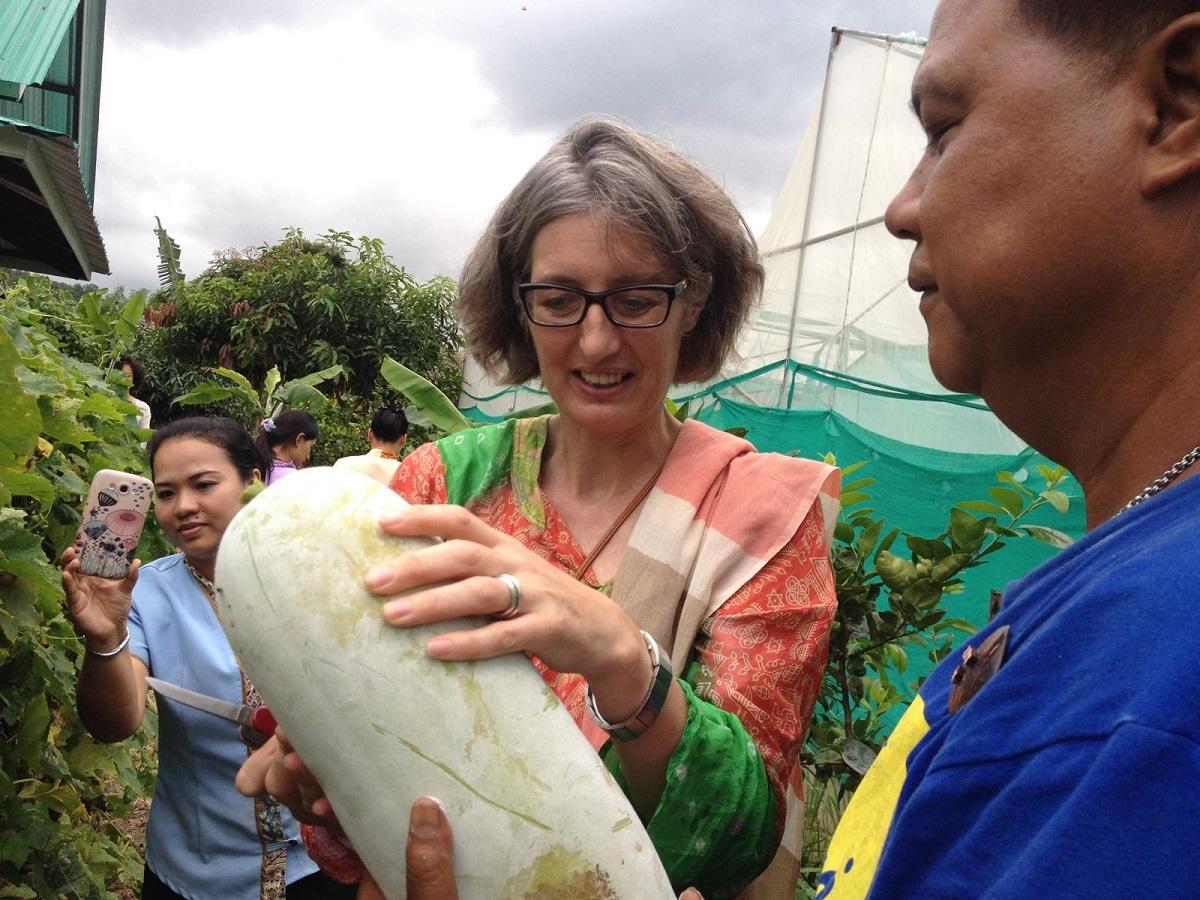
In your view, where do most businesses go wrong when working across the sustainable tourism agenda? What advice do you give them?
Responsible business programs should support long term business success and build trust in a brand. To deliver these outcomes, however, programs need to be more than skin deep. We do help businesses that just want to save a bit of money on energy, water or waste to achieve their ambitions and will promote the environmental improvement that results from these programs. But:
A bit of resource efficiency does not equate to a fully-fledged commitment to sustainability or responsible business. Businesses that want to really leverage from the trust and quality benefits of sustainability will place these issues at the center of all business decisions (alongside HR, finance, quality control, etc) and will embrace not only the environmental but also the social elements of this agenda.
In fact, we think that social justice will be the next big issue for many businesses. Those who engage in the dialogue around these issues will be those who are genuinely committed to long-term sustainability (some companies are already dealing with these issues).
What three pieces of advice would you give to someone wanting to start a career in the responsible tourism industry?
That’s difficult to answer without resorting to clichés.
- Be passionate about what you do (but don’t become a censorious eco-bore).
- Learn the skills of listening, engaging and motivating … most staff teams are more than able to create solutions to sustainability dilemmas. They just need a bit of facilitation and support along the way.
- Be prepared to start in a mainstream tourism or hospitality role and to convince your employer that the sustainability path is one that will pay dividends (financially, reputation-wise, morally).
For more information, visit the Responsible Hospitality Partnership website or connect with Rebecca Hawkins on LinkedIn.
[1] In reality, the cost of food waste disposal accounts for less than 4% of the real costs of food waste – most of the costs of food waste lie in food procurement and staff time processing food that is subsequently thrown away. When judged by disposal cost alone, food waste accounts for a significantly smaller proportion of turnover in most hospitality businesses than energy and water.
Enjoyed our interview with Rebecca Hawkins, founder of the Responsible Hospitality Partnership? Share and spread the word!

